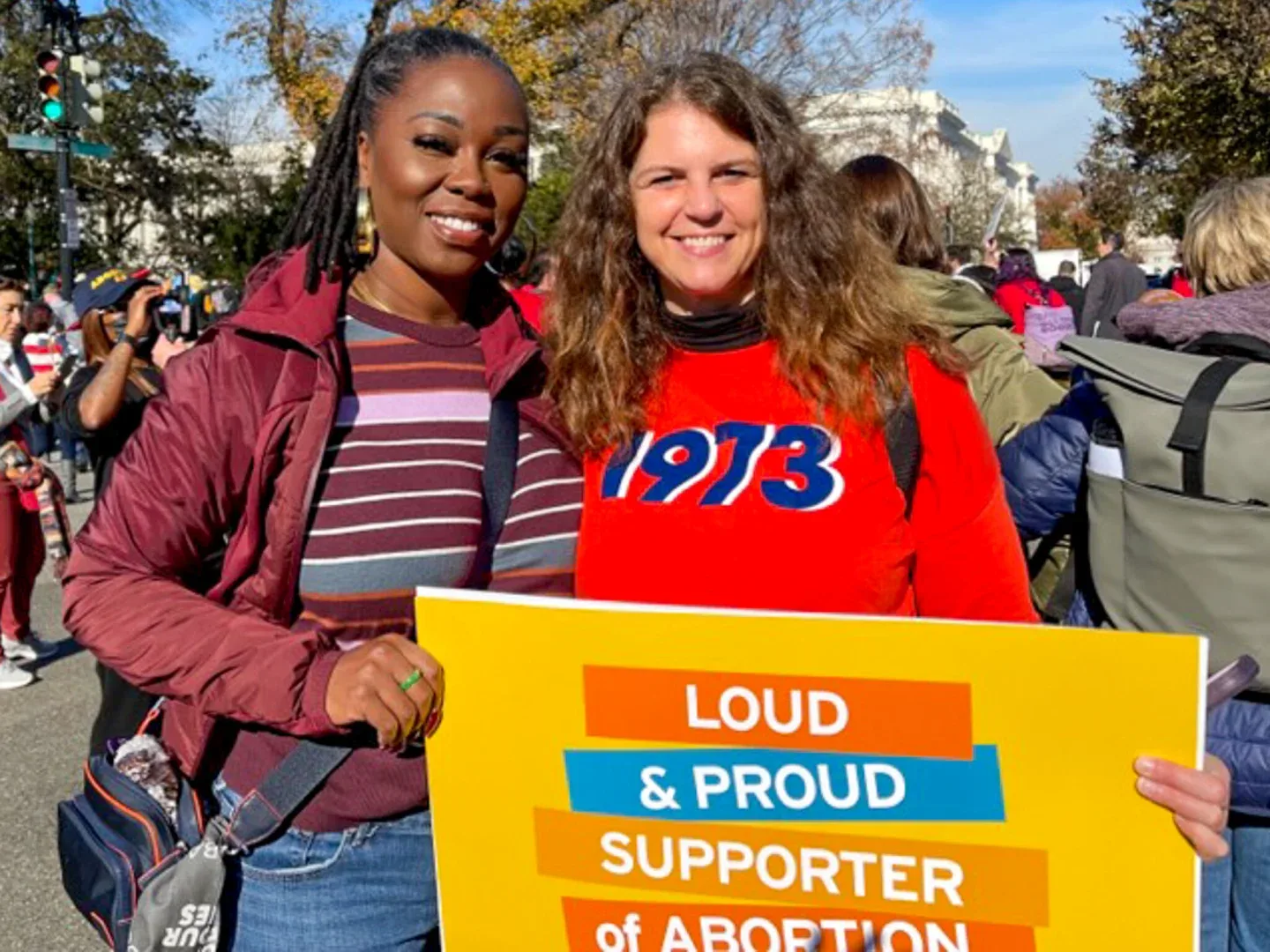March 20, 2023
Grantee Partner Spotlight: Provide
by Fatimah Gifford
The Ms. Foundation is proud to support our grantee partners, who are at the forefront of organizing and creating solutions that improve people’s lives and bring us closer to achieving a true democracy. The insight and perspective they provide is invaluable. The Q&A below was generated by Fatimah Gifford, Executive Director of Provide. Provide is a nonprofit that partners with health and social service workers to build a healthcare system that’s equipped to respond to unintended pregnancy and abortion. Provide is a Ms. South grantee partner. What brought you to this work? My early career focused on corporate, state-based and government work, and about a decade ago I started working with a national abortion provider. It was in that work that I realized there were so many people who looked like me and had the same lived experiences. I knew that I needed to learn a lot about how to connect, lead, and understand within the reproductive health, rights and justice spaces, but I also knew there was no other work I’d rather be doing. What keeps me in this work is that for so long, I’ve had to defend and fight for my humanity in so many ways that I became desensitized to the trauma it brought into my life. I have two adult sons, and I never want them to have to fight in the ways I had to. So for me, working in reproductive health, rights, and justice is part of the fight for justice for Black folks. How do you connect/collaborate in your community? Who are your key partners? Provide’s central driving belief is the fundamental and inherent worth of all people, whoever they are and whatever their circumstances. Collaboration is in our organizational DNA – we recognize we can’t do this work alone! We understand the importance of building a system that ensures continuity of care so we partner with diverse health and social service providers, national coalitions, government agencies and advocates. We recently partnered with the legal advocacy organization If/When/How. Today, more states are enacting criminalization laws that fine or jail abortion seekers. An If/When/How study found that nearly 50% of people who were criminalized for self-managing their abortion were reported to police by health care providers or social workers. We created a joint training with If/When/How, called Self-Managed Abortion, Intimate Partner Violence, and the Law, to clarify reporting requirements and hopefully decrease criminalization. What are you learning or what are you teaching? Provide delivers training and technical assistance on abortion referrals to medical and social service providers in the fields of HIV, domestic violence and sexual assault, addiction treatment, family planning, and primary care. In this post-Roe environment, providers feel disconnected from other systems of care and uncertain about what they can do or say. We recently surveyed our program participants, and learned: In response, we’re building a community for providers to increase their connectedness and capacity, and supporting providers in restricted-access states with training and tools to better support pregnant people during these uncertain times. Tell us about a recent victory or something you’re proud of. I’m proud of our Client Experience Study, which is the first study ever to assess whether clients with a positive pregnancy test are more or less satisfied with their care when providers discuss all pregnancy options. Policies have been made for years about what providers should do and say without anyone actually consulting the clients they serve. Our study showed that clients are more satisfied with their experience when all options are given – even those who intended to continue their pregnancy. They felt more respected and viewed their providers as more professional when they offered all options in a neutral way. The study also revealed significant racial disparities, with Black clients being more likely to leave the clinic with an unmet need for an abortion referral. We’re currently partnering with the Reproductive Health Access Project to disseminate best-practice resources based on the study’s findings to their network of nearly 7,000 medical providers. What can philanthropy do better and/or how can individuals be helpful allies? Over the last few years, philanthropy has reevaluated their position in the nonprofit landscape. Through these efforts, we have seen a lot of positive changes. I would encourage philanthropic partners to continue: What gives you hope? As a Black woman from the South, I am grateful for the collaboration and collective effort that many organizations, partners, and allies are leaning into in this moment. Everyone has a role to play in ensuring abortion remains accessible. While the Supreme Court’s decision to end the protections of Roe v. Wade has created a more complex legal environment, providers tell us they are more committed than ever to providing quality care for their pregnant clients and we remain committed to partnering with them to ensure that can happen.


